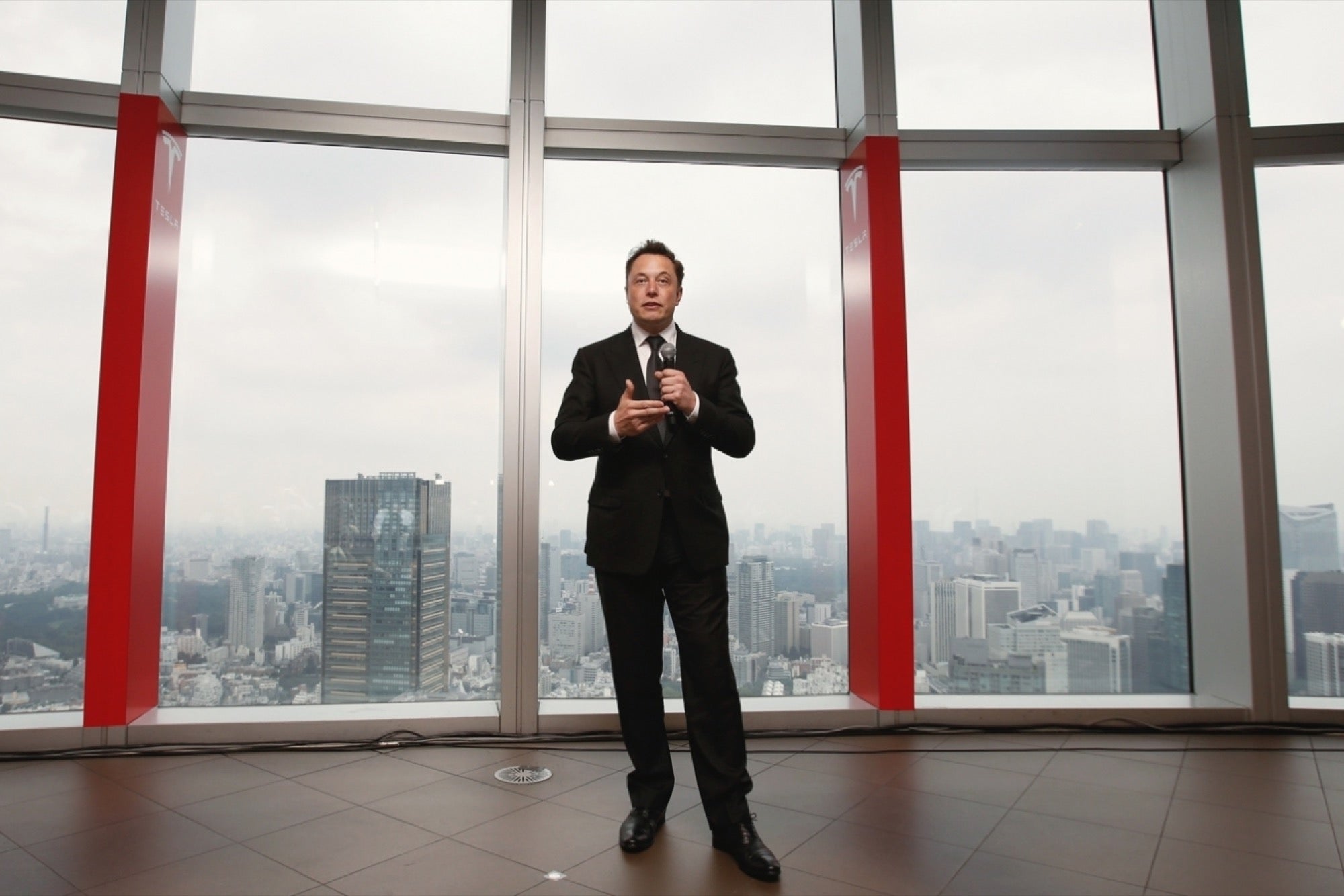Elon Musk: A Carbon Tax Is the Only Way to End World's Dependence on Fossil Fuels The tech entrepreneur appealed to a younger audience at the United Nations Climate Change Conference in Paris.
This story originally appeared on Fortune Magazine

As world leaders and policymakers continue climate negotiations in Paris, serial entrepreneur Elon Musk appealed to a younger, seemingly less powerful group to help prevent global warming.
His message: only a carbon tax—not innovation, conservation, or renewable energy—will accelerate the transition from carbon-producing fossil fuels to sustainable energy.
"I think you have tremendous power—you have the power to make change," Musk told students during a conference at the Sorbonne in Paris, just a 30-minute drive from the 2015 U.N. Climate Change Conference, where negotiations are underway to pass an international treaty that would cut emissions enough to prevent the world's temperature from rising 2 degrees Celsius.
Musk, who has pushed for a carbon tax before, said the tax should be revenue neutral and phased in over a period of years. A revenue neutral tax means governments would still receive the same amount of money despite a change in the tax code. Under Musk's scenario, taxes would be weighted heavily on carbon, and reduced in other areas. This approach already occurs, Musk said, citing how taxes are higher on cigarettes and alcohol than fruits and vegetables.
Musk encouraged students to press politicians to take action on climate change because "governments respond to popular pressure."
Eventually, the world will run out of carbon to mine and burn, and will have to move to sustainable energy, Musk predicted at the conference. A hidden subsidy that benefits all carbon-producing activity—about $5.3 trillion annually, according to the IMF — is delaying that transition, he said.
The net result of this "untaxed negative externality" is 35 gigatonnes of carbon per year being emitted into the atmosphere—additional carbon that Musk described as the "turd in the punch bowl."
Musk, who is chief executive of all-electric automaker Tesla Motors and aerospace manufacturer SpaceX, said governments, which set how companies are rewarded financially, must send a clear message.
"The fundamental problem is the rules today incent people to create carbon; this is madness," Musk said. "So what can you do? Whenever you have the opportunity, talk to your politicians, ask them to enact a carbon tax." Musk also encouraged the audience to talk to their friends about it and to "fight the propaganda from the carbon industry," which he compared to the tobacco industry's often spurious strategies to convince consumers smoking is safe.
While Musk tried to stick to the carbon tax message, he did stray into related topics, including energy storage, carbon capture and storage, fusion, the oil and gas lobby power, and the near failure of Tesla and SolarCity, where he is chairman of the board.
Here are some of his juicier comments.
On the oil and gas industry:
You definitely can't beat the oil and gas (industry) on lobbyists; that would be a losing battle. Exxon makes more profit in a year than the value of the entire solar industry in the U.S. There's no way you can win on money, it's impossible.
On the success of COP21:
I have a good feeling about it. It's going to be degrees of success. Copenhagen was terrible. I think there was a net increase in global warming as a result of that one.
On carbon capture and storage:
I'm not aware of any carbon sequestration or carbon storage system that works and works economically.
On fusion:
I do think fusion is a feasible technology, we can definitely make fusion work. But it is a far off technology. To make fusion at the power plant level work it is probably 30 years away and a lot of effort. That's why, at least for now, and even in the long-term, I'm a big proponent of using the big fusion power plant in the sky called the sun.
On nuclear fission:
Nuclear fission, if it's in a location that's not subject to natural disasters, I think that's actually a good thing.
On the risks of energy and auto startups:
Starting companies in either the automotive arena or the energy arena is quite a tricky business. When we first started Tesla and SolarCity, we thought they would fail. Tesla in particular we thought probably had a 10% chance of success. So, particularly cars, it's hard to stay alive as a car company. Honestly, it has to be one of the worst risk-adjusted returns.
The last two years is when Tesla achieved a level when it wasn't facing imminent death. Even as recently as 2013, we were operating with maybe one to two weeks of money.
Other billionaire entrepreneurs are using COP21 to announce their own climate change efforts. As the Paris climate talks got underway Monday, Bill Gates and other entrepreneurs, announced the creation of the Breakthrough Energy Coalition. The global group of private investors, who include Virgin's Richard Branson, venture capitalists John Doerr and Vinod Khosla and Amazon's Jeff Bezos, say they're committed to "early-stage investing in potentially transformative energy systems" with "near zero carbon emissions."









